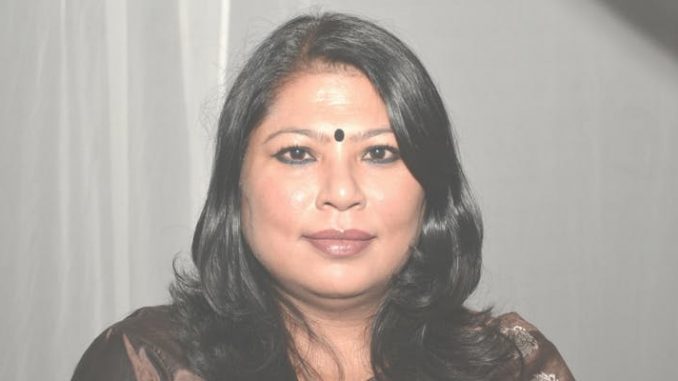
By Sneh Singh
An influencer of maternal healthcare policy, Aparajita Gogoi emphasises the importance of gender equality and women’s empowerment in women’s healthcare
Aparajita Gogoi has a strong view about maternal healthcare. “With around 44,000 women dying each year from pregnancy-related causes, India has among the highest number of maternal deaths in the world,” she says. Despite a rapid decline in maternal mortality rate in the last 10 years, 15 percent of maternal deaths around the world occur in India. She estimates that India’s maternal death is estimated 167 deaths per 1,00,000 live births. She thinks 80 percent of those deaths are due to preventable causes.

A political scientist, Aparajita has been working for the right of maternal healthcare since 2001, when she led a protest march to the Taj Mahal, which was built as a memorial to Mumtaz Mahal, who died during childbirth.
Aparajita is currently a key influencer in maternal healthcare. She is also the national coordinator of The White Ribbon Alliance for Safe Motherhood, India (WRAI) and the executive director of the Centre for Catalyzing Change (C3, formerly CEDPA India), both trying to build alliances of people and organisations to reduce maternal mortality and morbidity in India.
Gender equality first
Aparajita, who hails from Assam, thinks achievements like Mangalyaan reaching Mars or India having nuclear power will not make much difference to the lives of girls and women in the country.
Showing the distressed situation of girls in the country, she highlights, “In the last three decades, 12 million girls in our country have been killed before they were born, while in many parts of the country, the sex ratio has dropped to fewer than 850 females per 1,000 males. With about 20 percent of our girls married before the age of 18, we can be called a nation of child brides.”
These appalling conditions drove Aparajita to work on issues that affect girls and women. Holding a PhD in international politics from Jawaharlal Nehru University, New Delhi and a postgraduate diploma in journalism, she says the former gave her grounding in social, political, and economic systems and how policies are made while journalism taught her how to package and present messages, and basing advocacy on evidence.
The groundwork

Currently, at C3, she has launched the campaign ‘Hamara Swasthya Hamari Awaaz’ which means ‘Our Health, Our Voices’, an initiative to directly engage with women in rural areas and understand the change they wish for in terms of a better maternal healthcare service. “These voices will then be presented to the highest possible political leadership with the expected outcome that there would be a better understanding of what women value and ask for in terms of quality of care,” says the executive director of C3.
C3, an NGO working towards the empowerment of women, is trying to reach out to the unreachable by leveraging government programmes.
Aparajita says, “Our programmes for young people have reached out to over two million girls and boys in India. We are committed to women’s equal participation in governance and leadership roles as a step towards building a stronger nation. We are moving towards the fulfilment of our vision in our own small way — reflecting local values and needs, we partner with communities to raise women’s voices, mobilise advocates for better public policies and programmes, and increase women’s political participation.”
C3’s vision is an India where women and girls are fully empowered and enabled to realise their rights, opportunities, and achieve gender equality. She adds, “We want to keep working to create a world in which women and girls are able to fulfil their dreams free from the constraints of poverty and inequality and in which their full worth is realised and valued.”
Empowering women
According to Aparajita, equality can be only be achieved when women in our country are taking their own decisions. “Real equality is when women have political power, are literate, and have equal status in their societies, when their voices are really heard.”
Addressing this gender discrimination is the biggest problem. Aparajita points out that even though the gender gap in literacy has declined, there is a need to focus on bridging social and gender gaps in education. She highlights, “Measures such as education, eradication of under-nutrition and anaemia, provision of quality services and functional health system and infrastructure has to be in place to assure that women receive the care they need to grow as empowered individuals. Gender-sensitive policies and programmes should be strengthened keeping women at the centre and including them in designing of programmes.”
The situation is similar for women who are at the top rung of Indian society. Women hold only 18 percent of the parliamentary seats worldwide while the percentage of women parliamentarians in India is just 11.
Lastly, Aparajita says, “There are many barriers in the way of promoting women’s leadership such as illiteracy, social norms and behaviours, balancing professional responsibilities with family obligations, and lack of knowledge about political processes and institutions. Women’s equal participation is recognition of their right to speak and be heard and a means to social transformation.”
Source: YourStory.com

Leave a Reply